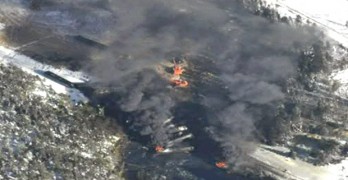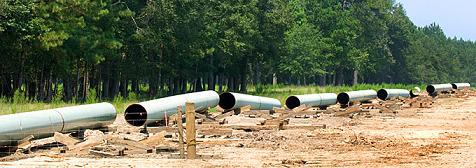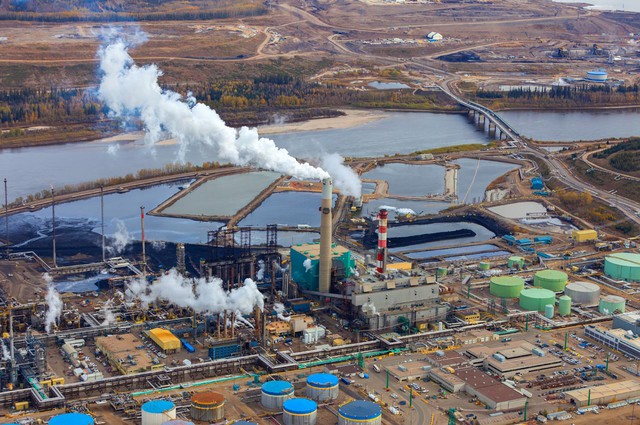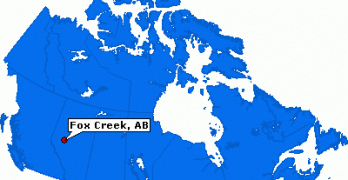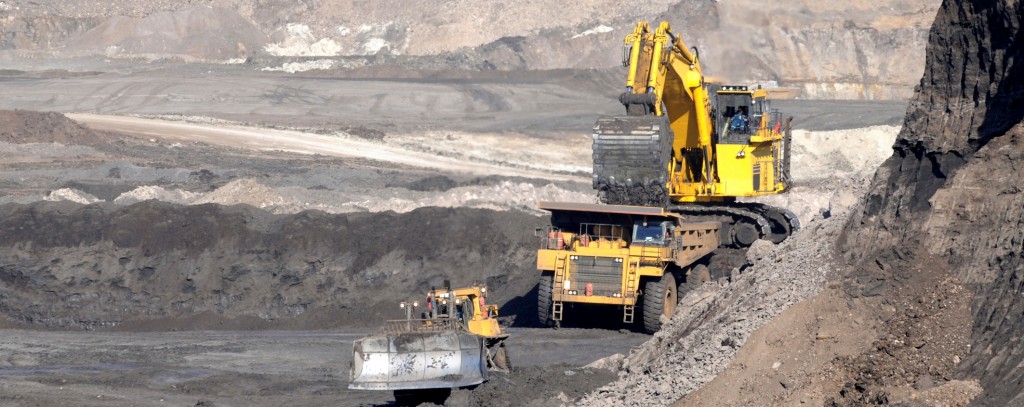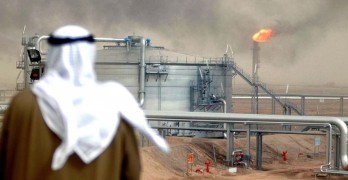While a debate rages over the use of hydraulic fracturing to exploit fossil fuel reserves inland, the practice has quietly taken hold offshore, in the Gulf of Mexico. Documents obtained by “Fault Lines” reveal that the world’s largest oil firms are now fracking in some of the Gulf’s deepest waters — raising questions about how […]
Be careful what you wish for
The pressure to stop major oil pipeline projects prompted the industry to look for other solutions to moving oil. The train seemed like a natural solution. Forget the fact that pipelines are more energy-efficient and emit less carbon. People protest against them so trains carrying millions of barrels of oil are crisscrossing the continent in greater […]
What does the data on oil spills look like?
The warnings are stark, the images dire. “If drilling is allowed off the East Coast of the United States, it puts our beaches, our fishermen, and our environment in the crosshairs for an oil spill that could devastate our shores,” Sen. Ed Markey, D-Mass., said in a press conference last month. And this week, the […]
Looking for options
Alberta is in discussions with Alaska about shipping oil sands crude through the U.S. state to the Pacific as approval for the southbound Keystone XL pipeline languishes in Washington. The Alaska plan would involve constructing a pipeline along the Mackenzie River valley and then west to existing ports on the U.S. coast, Alberta Premier Jim […]
Comment: Poll results few oil execs will be pleased with
Alberta Oil magazine has published its National Survey on Energy Literacy, the culmination of 1,396 online interviews of a representative sample of Canadians conducted by Leger. The results are particularly interesting coming from Alberta Oil, a magazine destined for the desks of the energy sector’s senior executives and decision-makers. There are quite a few nuggets […]
What caused January earthquake in Alberta
On January 22, Fox Creek, Alberta was struck by a 4.4-magnitude earthquake. While the earthquake caused neither significant property damage nor injury, it did shake residents up. More importantly, it brought up the ongoing debate regarding the cause of the seismic activity. The science is still out on the definitive cause of the quake, but preliminary […]
Comment: Who should lead the way with carbon pricing systems?
If provinces are serious about keeping the federal government out of their jurisdiction, they need to demonstrate they can work together on critical files like carbon policy. Alberta, British Columbia and Quebec have priced carbon to help meet GHG (greenhouse gas) emission targets. Once Ontario’s system is in place, 86 per cent of Canadians will […]
Comment: “Tar Sands” or “Oil Sands” you decide
If you’ve ever watched the opening scene* of the 1981 Canadian horror movie called Scanners, you know what happens to a typical advocate of wide-open development of Alberta’s vast bituminous sands if you happen to use the term“tar sands.” This makes it almost too much fun not to say “tar sands”every time you have the […]
A new way to look at the oil sands
According to the Canadian Association of Petroleum Producers, the EU’s new fuel quality directive (FQD) will treat Canada’s oil sands on a level playing field with other sources of oil around the world, creating new export opportunities for energy and allowing Canada to compete more freely in the global market. Tim McMillan, CAPP President and […]
‘Lower oil prices make it difficult to achieve climate-change goals’
The Saudis have stated their goal in maintaining current oil output and export volumes is to protect market share against foreign rivals. The Saudi’s rivals are not limited to other oil producers though, they are also striving to undermine clean energy technologies and climate change policies. “Lower oil prices are going to make it more difficult to […]
- « Previous Page
- 1
- …
- 7
- 8
- 9
- 10
- 11
- …
- 35
- Next Page »

